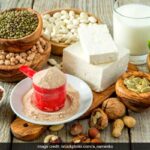The Science Behind How Protein Can Help You Lose Weight Naturally
Overview of protein and its role in weight loss
Understanding the relationship between protein and lose weight can be key to achieving your health goals. Protein is an essential macronutrient that plays a crucial role in numerous bodily functions, including muscle repair, metabolism regulation, and satiety. Incorporating adequate protein into your diet can aid in weight management and promote a healthy body composition.
Understanding Protein and Lose Weight
Importance of protein in a weight loss diet
Protein is known for its role in satiety, helping you feel full and satisfied after meals, which can prevent overeating and support weight loss efforts. A high-protein diet can also help preserve lean muscle mass during calorie restriction, leading to a healthier body weight and composition.
How protein can aid in weight loss
Consuming protein-rich foods can boost metabolism and increase the number of calories burned during digestion, known as the thermic effect of food. This can contribute to a greater calorie deficit, which is essential for shedding body fat and achieving weight loss goals.
Effects of protein on metabolism and calorie burning
Adding protein to your meals can have a positive impact on your metabolic rate, potentially leading to enhanced fat loss. Increasing the amount of protein in your diet may help prevent weight regain by promoting satiety and supporting a healthy body weight.
Benefits of High-Protein Diet
When it comes to weight loss, incorporating a high-protein diet can provide numerous benefits that go beyond just shedding pounds. Let’s explore how opting for protein-rich foods can be advantageous in your weight loss journey.
Promoting satiety and reducing cravings
One of the key advantages of a high-protein diet is its ability to promote satiety, which refers to the feeling of fullness and satisfaction after a meal. By including protein in your meals, you are less likely to experience sudden hunger pangs or cravings, making it easier to stick to your weight loss goals.
Preventing muscle loss during weight loss
When you’re trying to lose weight, there’s a risk of losing muscle mass along with fat through calorie restriction. However, consuming adequate protein can help preserve lean muscle tissue, ensuring that your weight loss primarily targets fat stores rather than valuable muscle, leading to a healthier body composition.
Supporting overall health and immune function
Protein is not only essential for weight management but also plays a crucial role in supporting overall health and immune function. By meeting your protein needs, you ensure that your body has the necessary building blocks for various bodily functions, contributing to a stronger immune system and overall well-being.
Practical Ways to Increase Protein Intake
Incorporating protein shakes into your diet
One practical way to boost your protein intake is by incorporating protein shakes into your daily routine. Protein shakes are convenient and versatile, making them an easy option for increasing your protein consumption, especially for individuals with busy lifestyles or those in need of quick and convenient sources of nutrients.
Choosing high-protein foods and sources
Opting for high-protein foods and sources can significantly impact your protein intake. Include a variety of protein-rich foods such as lean meats, poultry, fish, eggs, dairy products, legumes, nuts, and seeds in your meals. These choices not only provide ample protein but also offer essential nutrients vital for overall health and well-being.
Adjusting protein intake for weight loss goals
When aiming for weight loss, adjusting your protein intake can be beneficial. Consuming a higher amount of protein can support muscle retention during calorie restriction, aiding in preserving lean body mass. This, in turn, can contribute to a healthier body composition and assist in achieving your weight loss objectives.
Maximizing Protein’s Weight Loss Potential
Combining protein intake with exercise for optimal results
For maximizing weight loss potential, combining adequate protein intake with regular exercise is key. Physical activity, especially resistance training, can help build and maintain muscle mass while protein supports muscle recovery and growth. Together, they create a powerful combination for enhancing metabolism and achieving optimal weight loss outcomes.
Utilizing protein supplements like protein powders
Incorporating protein supplements, such as protein powders, into your diet can be a convenient way to meet your protein needs, particularly for individuals with increased requirements or specific dietary preferences. Protein powders offer a concentrated source of protein, allowing for quick and easy consumption, making them a handy option for enhancing protein intake effectively.
Achieving healthy weight management through protein-rich meals
Building meals around protein-rich foods can contribute to healthy weight management. Incorporating a variety of protein sources into your daily diet helps regulate appetite, support metabolism, and sustain energy levels. Including protein-rich meals in your weight loss plan can aid in achieving optimal nutritional balance and promoting sustainable weight management.




















